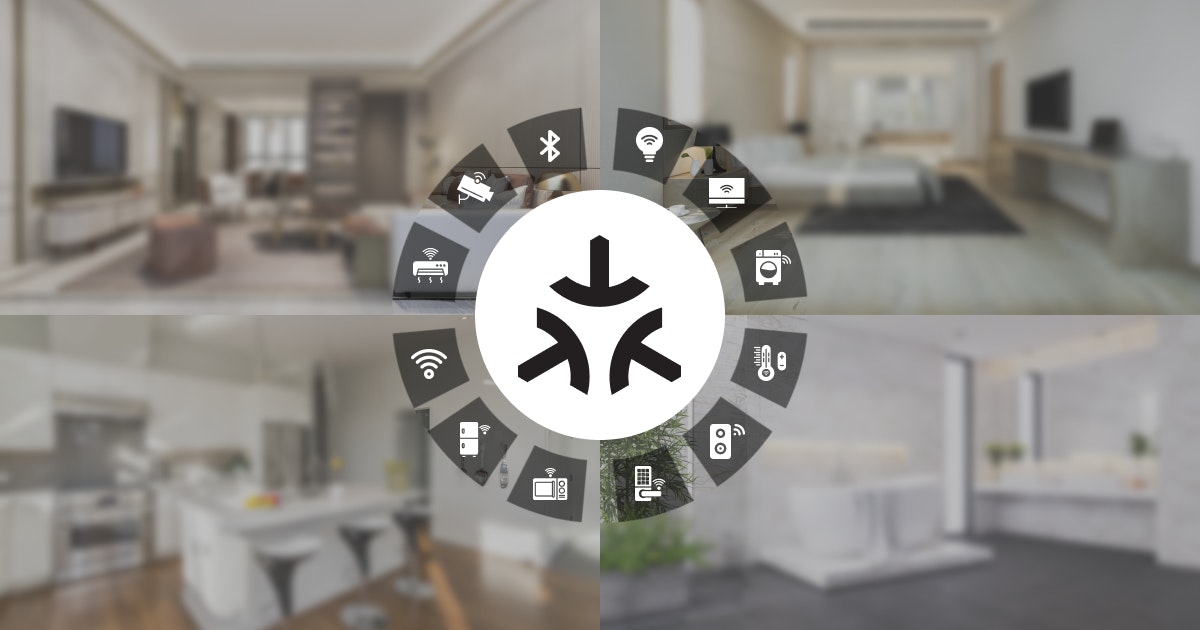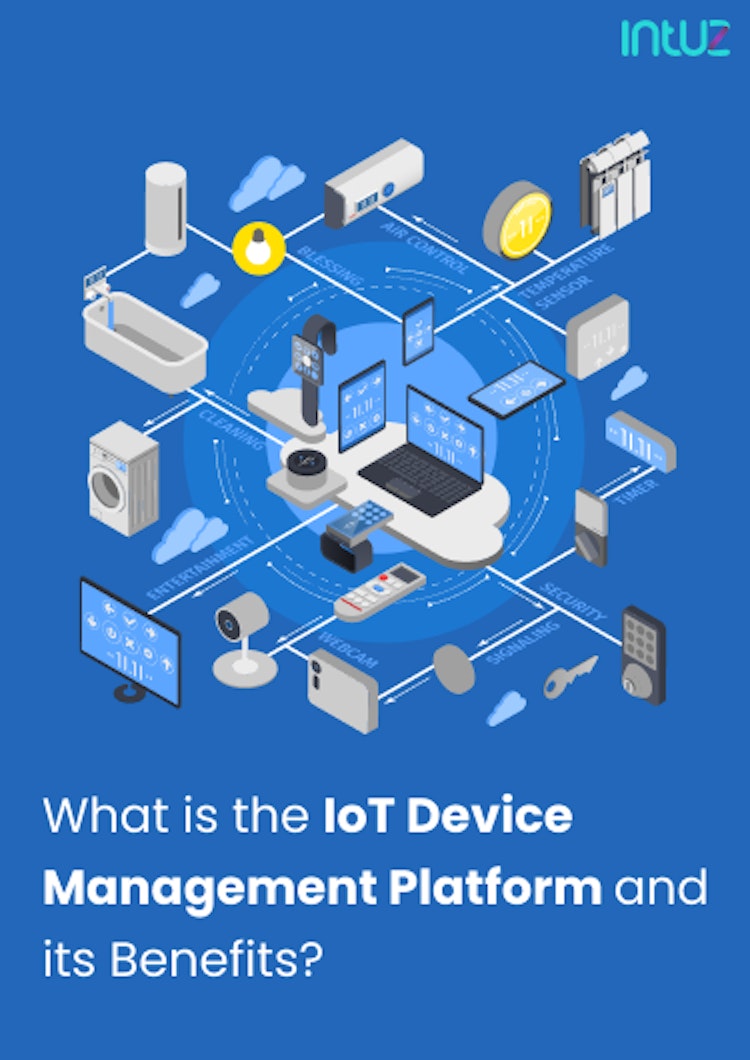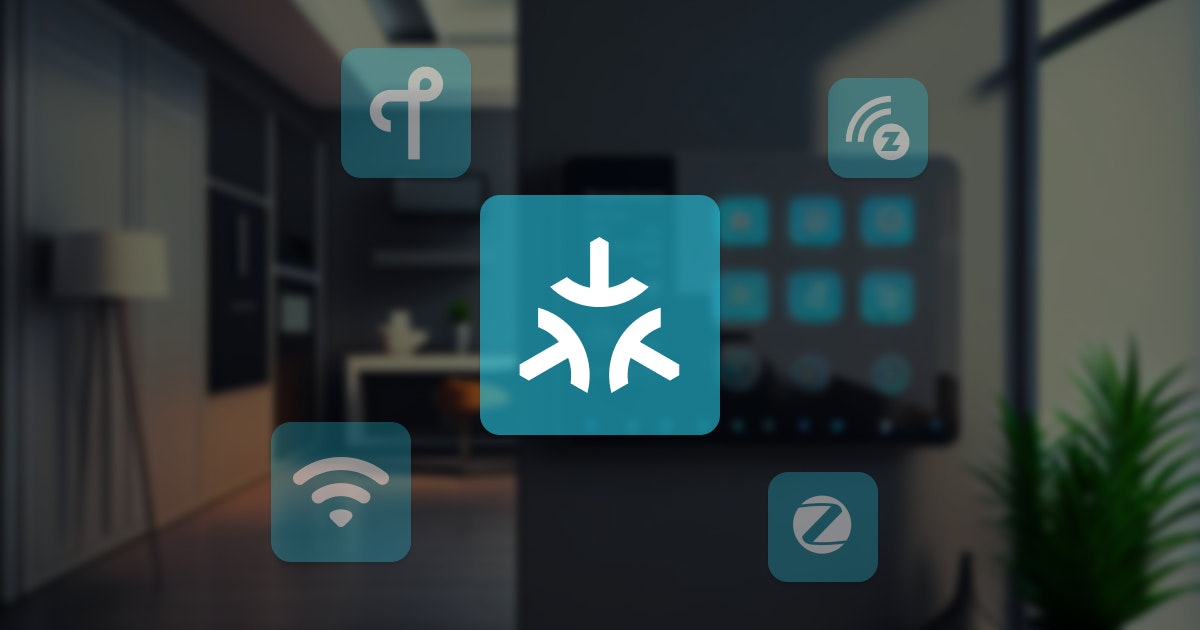Table of Content
The matter is a next-generation smart home standard that brings together all IoT devices, enabling seamless connection. It is an open-source protocol that encourages communication among smart devices and platforms.
Matter allows end-users to link various mobile apps and smart home gadgets, regardless of the device's make or model. Products that adhere to Matter have a badge (or logo) indicating interoperability with certified Matter products from any manufacturer.
The Matter smart home standard was developed by Project Connected Home Over IP (Project Chip) in 2019 and is now managed by the Connectivity Standards Alliance (CSA), formerly known as the Zigbee Alliance.
Banking on Matter's functionality, CSA has managed to attract many top players in the smart home industry to adopt the protocol, including Apple HomeKit, Amazon Alexa, Google Home, and Samsung SmartThings.
Samsung and Google make "smart homes" even "smarter" with Matter.
The two tech giants have announced an expansion of their partnership to bring improved interoperability and user experiences through the multi-admin support of Matter.
SmartThings, for instance, will roll out Matter-certified products across various brands such as Google Nest, Eve Systems, Nanoleaf, and Yale.
Needless to say, manufacturers can accelerate the adoption of smart home technology and provide more convenient connected home experiences with the help of Matter.
The support for Matter in SmartThings will allow it to remain a versatile option for end-users looking to build or expand their smart homes. They can easily locate, select, and operate Matter-powered devices through Android apps for SmartThings or Google Home.
How does Matter smart homework?
Matter is a communication standard that operates over IP and defines how smart devices can communicate and be discovered, allowing for smooth interaction between different manufacturing brands. It uses WiFi technology, the Thread mesh network for communication, and Bluetooth Low Energy for commissioning.
Thread is a wireless protocol specifically designed for IoT devices to address security, interoperability, range, reliability, and energy concerns. The Zigbee Alliance, a member of the Matter group, plans to make Zigbee devices compatible with Matter in the future.
Automate Your Smart Home with Matter Protocol Expertise!
Explore ServicesWhich devices work with Matter?
The matter is currently focused on developing simpler smart home devices, such as smart locks, smart light bulbs, robotic vacuums, and cameras, which will be released in the next 2-3 years.
matter supported devices
In addition to motion sensors, smoke and carbon monoxide detectors, and garage door openers, Matter will be compatible with air quality sensors and other devices.
While the CSA has already certified around 200 Matter devices, this is still only a small portion of the entire smart home ecosystem. To make your smart home gadgets compatible with Matter, your manufacturing business must obtain Matter certification.
However, please note the certification is currently available only for select smart home products such as smart plugs and switches, heating and cooling equipment, window coverings and blinds, door locks, and media devices.
Other products, such as security cameras, must wait until the next revision of the standard. Matter will also support mobile applications for Google Home and Apple Home in the near future. The devices that support the following protocols can work with Matter:
1. WiFi
This is fast and reliable wireless communication with a range of approximately 25 meters.
2. Thread
A wireless protocol developed by a group of companies, including Nest, Samsung, QUALCOMM, and OSRAM, Thread is designed to allow connected devices to communicate even when the WiFi network goes down.
3. Zigbee
This wireless protocol operates in a mesh network, using a device to relay a signal to other appliances to strengthen and expand the network. It can be used in dimmers, door locks, thermostats, and products such as WeMo and Philips Hue.
4. Z-Wave
Similar to Zigbee, Z-Wave is an open-source mesh network protocol. The main difference between the two is the data throughput, with Z-Wave being approximately 6X slower than Zigbee. However, it requires less energy to cover the same range as Zigbee. It is used in products such as SmartThings.
How will Matter upgrade smart home standards?
Matter is designed to improve existing smart home standards and make it easier for devices from different manufacturing brands to work together. As a manufacturer, this technology is a boon as it enables you to offer uninterrupted service to the end-users. Here is how Matter upgrades smart home standards:
- It allows developers to create products compatible with a wide range of systems and services.
- It standardizes data exchange to increase compatibility between different vendors' products.
- Based on technical specifications for data transfer, it allows users to control multiple components from one app or interface.
- End-users will have access to more options for controlling their smart homes and the ability to integrate different brands into one system.
- By unifying data formats, smart home device manufacturers can share information more efficiently and create better interoperability between their products.
- IoT vendors will benefit from having a single source of truth for device compatibility and integration rather than having to build custom solutions for each product.
Matter vs. other networking protocols
Matter is compatible with WiFi, ethernet, and Thread. Matter controllers handle communication with WiFi and ethernet devices, but if you build Thread devices, you will need a Thread border router to connect to the Matter controller.
Some Matter controllers also function as Thread border routers to make things easier. But how does Matter fare against these networking protocols? Let us take a look:
Matter Vs Other Networking Protocols
Will existing smart home devices work with Matter?
Yes, Matter is compatible with existing smart home devices through its open API. It means that one can easily add their existing system to the Matter setup and control all devices in one place.
A software update could add support for Matter; an existing device can be upgraded to employ the connectivity option. It must have sufficient memory and processing capability to do so. Manufacturers are also building bridge products to support Matter so that regular products can be upgraded easily and conveniently.
For instance, Signify, a producer of lighting goods under the Phillips name, recently stated that it will update the Matter-compatible bridge for its Philips Hue smart light bulbs. At the same time, Ikea just unveiled its new Dirigera smart home hub.
Since it will take time for Matter-certified devices to replace older, non-compliant devices, it is essential to look for the Matter logo to ensure compatibility with the standard.
Guarantee of reliable and secure connectivity with Matter
Cybersecurity concerns have historically hindered the adoption of IoT. While the technology has improved in terms of data privacy and device protection, it still lacks the robust protocols needed to prevent cyberattacks.
In recognition of these issues, Matter's development has strongly emphasized reliable and stable connectivity.
It is designed with multiple layers of security and encryption protocols that protect data from malicious attacks, ensuring that only authorized users can access the network and its resources. Matter offers the following features that make it an excellent choice for businesses:
1. Comprehensiveness
A layered method establishes sturdy security, including authentication and attestation for commissioning, protecting every transmission, and securing OTA firmware updates.
2. Resilience
Matter security is vigorous because it is made to guard, detect, and recover. There are multiple ways to accomplish specific operations in Matter and to protect against the most typical denial-of-service assaults. Even when employing sleeping devices or group communications, Matter is defined to be resilient.
3. Strength
Matter uses various cutting-edge security measures. It relies on a single sapid cryptography suite built on tried-and-tested, accepted, and recognizable cryptographic primitives.
4. Security
Matter protocols are designed keeping secure defaults in mind. Rather than loading a series of security weaknesses, Matter is configured to require the same amount of safety for every node. It was done to reduce complexity and ensure that nodes are not vulnerable to exploitation by default.
5. Agility
With crypto-flexibility in mind, Matter can meet new advancements and dangers.
6. Ease
Matter security aims to simplify the implementation of smart devices and their use by customers. Matter's core specification includes examples and test vectors for every functional security component.
Matter privacy principles
Matter has implemented data privacy principles for all interactions involving personal information between devices and software agents.
Matter privacy principles
While these principles provide a strong foundation for protecting personal data, additional support from the operating environment and infrastructure is necessary for complete protection. Let us study the five important Matter privacy principles:
1. Open standard
As an open standard, Matter enables peer review and validation of the protocol and security measures it incorporates, including communication between authorized Matter devices.
2. Proof of identity
To ensure that the data is transferred exclusively between established Matter entities, all devices must provide identification documentation in the form of an attestation keypair and an x.509 certification issued by a trusted CA.
3. Defined purpose
According to the standard, the information exchanged between Matter nodes is solely used for predetermined purposes, such as verifying the identities of parties with whom one interacts, establishing secure mutual contexts or associations for ongoing operation, and establishing mutually acceptable interaction modalities.
4. Data minimization
To operate effectively and reliably, the Matter protocol devices require sharing minimal information during interactions. The design of Matter's architecture has focused on reducing the amount of data transferred between nodes to reduce the risk of unintentional information leakage.
5. Privacy-preserving mechanisms
To address privacy concerns, Matter has incorporated various privacy-preserving techniques into its core specification, which include the use of distinct random node identities, customizable privacy options for session formation, non-trackable IP addresses, and private message headers in sessions.
Matter-supported devices
Matter-supported devices have been designed to integrate with the Matter platform and connect physical products and services, which can be controlled using voice assistants like Amazon Alexa and Apple Siri, as well as manufacturer-provided apps.
Many smart home brands have pledged their support for the Matter standard, including Amazon, Apple, Aqara (Lumi), Arlo Technologies, Belkin Wemo, Comcast, Eve Systems, Ikea, GE Lighting, Google, Infineon, Leedarson, LG Electronics, Mui Lab, Nanoleaf, Nordic Semiconductor, NXP Semiconductors, Philips Hue, Qorvo, Samsung SmartThings, Schlage (Allegion), Sengled, Texas Instruments, Tuya Smart, Universal Electronics, and Veea.
With Matter integration, smart home devices can work together and perform various tasks using automation tools such as Scenes and Schedules. For example, the end-user can set connected devices to turn on or off at specific times or when certain conditions are met.
Additionally, they can monitor energy usage and receive alerts if anything seems unusual. Matter-supported smart home devices offer greater convenience, enhanced security, and improved energy efficiency for any home.
As more companies support the Matter platform, it is becoming easier for homeowners to connect their entire homes with a few clicks. By choosing products compatible with Matter, they can ensure their home is up to date with the latest smart home technology.
Matter Protocol Implementation and Consulting Service!
Explore ServicesOver to you
A global IoT standard like Matter can help create an interoperable system that addresses many incompatibility issues. Using the Matter IoT standard, you can provide local connectivity for your devices - at the time of manufacturing - without developing multiple versions or connectors for different consumer ecosystems.
If you are an OEM looking to breed a new range of custom IoT solutions that work in tandem with your machinery and are powered by Matter, you have to let Intuz experts help you gain a competitive edge in the market.
Book a Free 45-minute Consultation with Our IoT Experts Today! Get a customized roadmap and strategies to leverage matter protocol options for seamless smart home solutions.





